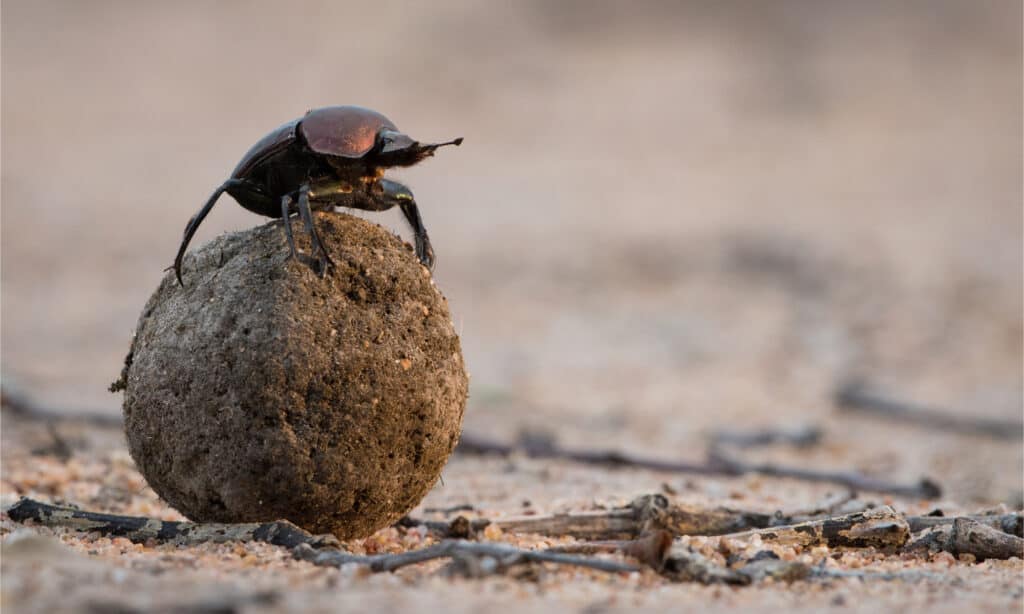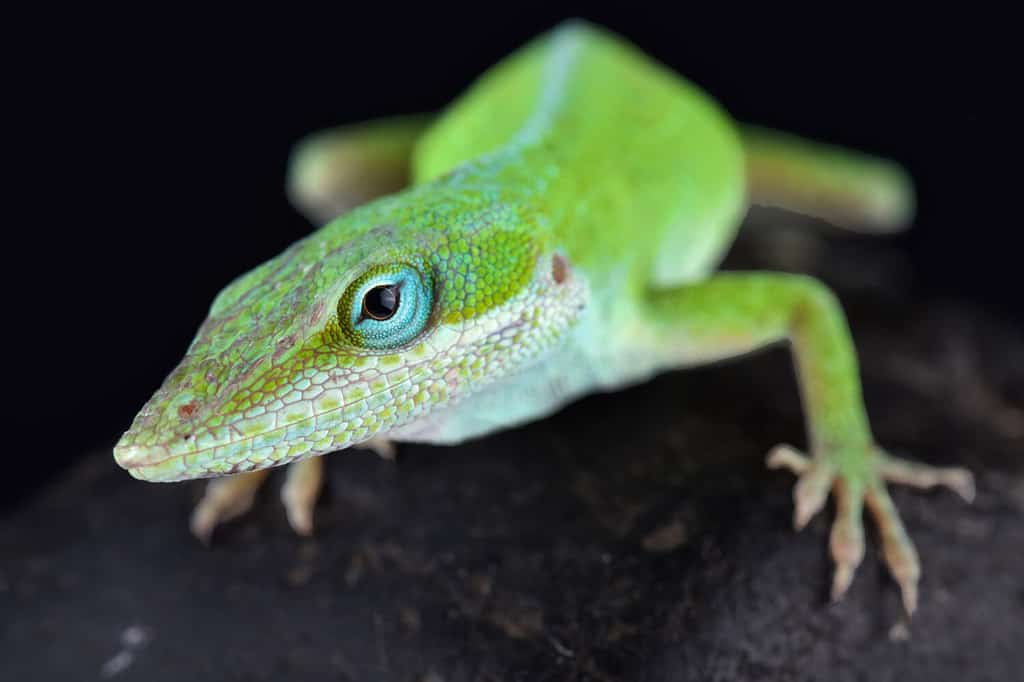Ecology is the study of relationships between living organisms and an ecological niche is the position of species within its ecosystem. An ecological niche pertains to the factors and conditions needed for a survival of a species, including how it affects other species within its environment.
Summary: Ecological Niche

An example of an ecological niche is the flightless dung beetle. This insect exploits animal feces as a food source within its ecological niche.
©Villiers Steyn/Shutterstock.com
The term ecological niche describes how one organism or a group of the same organism respond to its environment and any changes within its environment, such as the distribution of resources and food competitors. This niche also studies how organisms respond to altering environments and how that impacts other species.
There are several ecological niches and concepts. The Grinnellian niche is a concept that a species’ niche is determined by its habitat, along with its behavior and adaptations. The niche is the habitat requirements and a species behavior that allow it to persist.
The Eltonian niche states that an organism grows and changes because of its environment. But it also emphasizes that a species can also change the environment and its own behavior as it grows.
An example of an ecological niche is the flightless dung beetle. This insect exploits animal feces as a food source within its ecological niche.
What is Niche Differentiation?

Anole lizard species occupy the same region and eat the same diet, but they avoid competition by living in different locations. This is an example of niche differentiation.
©reptiles4all/Shutterstock.com
Niche differentiation is a process by which competing animals within an ecological niche, respond differently to their environment in order to survive and coexist. Two species that have identical ecological roles will eventually drive the other out, unless they differentiate their niches. Animals can do this by eating different foods and living in separate areas of the same environment.



